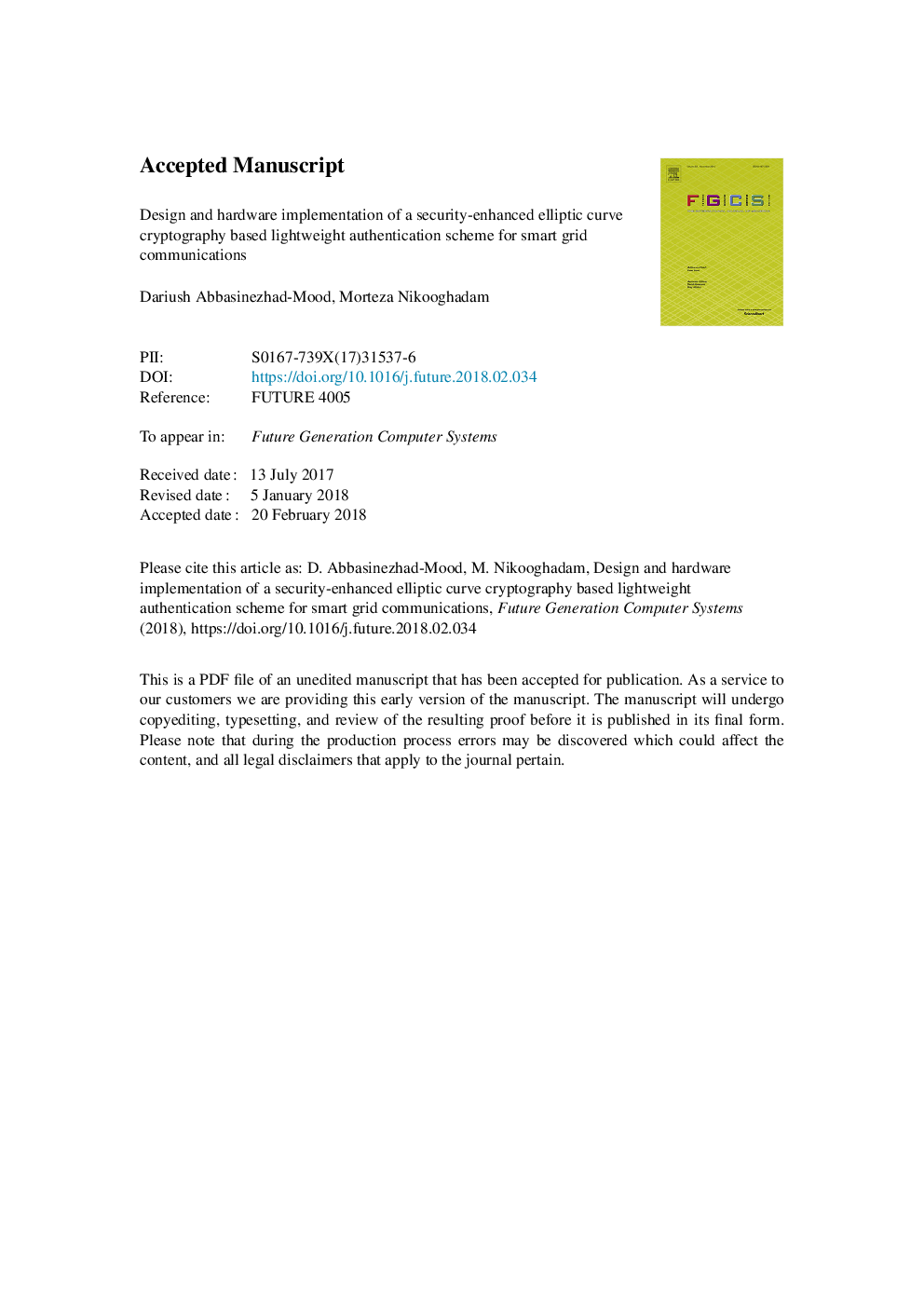ترجمه فارسی عنوان مقاله
پیاده سازی طراحی و سختافزاری یک رمزنگاری منحنی بیضوی بر پایه امنیت مبتنی بر سبک اعتبار سنجی برای ارتباطات شبکه هوشمند
عنوان انگلیسی
Design and hardware implementation of a security-enhanced elliptic curve cryptography based lightweight authentication scheme for smart grid communications
| کد مقاله | سال انتشار | تعداد صفحات مقاله انگلیسی |
|---|---|---|
| 142074 | 2018 | 19 صفحه PDF |
منبع

Publisher : Elsevier - Science Direct (الزویر - ساینس دایرکت)
Journal : Future Generation Computer Systems, Volume 84, July 2018, Pages 47-57

